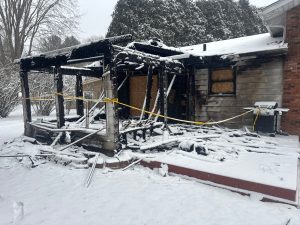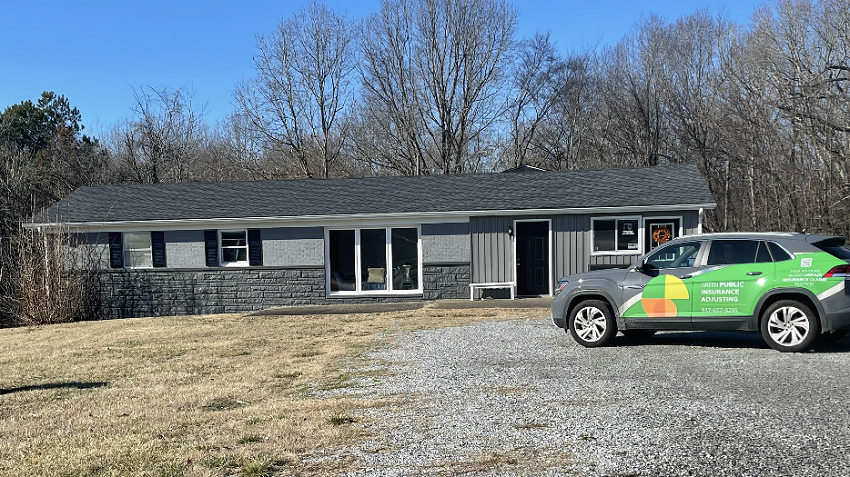A troubling pattern has emerged in the way some carriers, including Allstate, are handling replacement cost reimbursements. A policyholder receives an Actual Cash Value (ACV) payment for the undisputed portion of their property damage claim. They complete repairs, submit documentation for the Replacement Cost Benefit (RCB) that was held back, and wait for payment—only to receive a denial response stating the request was “untimely.”
The insurer cites the policy language under “How We Pay for a Loss” and “Building Structure Reimbursement.” The notice states the policyholder failed to make the replacement cost request within 180 days of the ACV payment and therefore the reimbursement is forfeited. The problem? The carrier never gave the insured written notice that this contractual deadline was approaching.
In some cases, that “holdback” represents more than $10,000 — money the policyholder spent on legitimate repairs, fully documented and in good faith.
How the Policy Provision Is Being Used
Allstate’s policy language typically reads something like this:
“We will pay no more than the actual cash value of the damage until actual repair or replacement is completed. You may make a claim for additional payment if you repair or replace the damaged, destroyed, or stolen property within 180 days after the actual cash value payment.”
On its face, the clause is clear — the insured has 180 days to complete repairs and submit proof. But in practice, it’s often being applied without proper notice and without regard to the insurer’s own duty of fair claims handling.
Many policyholders aren’t aware the 180-day period even exists. Adjusters may never mention it when issuing the initial payment. If months pass while waiting on contractor availability, permitting, or inspection delays, the insured can unknowingly lose eligibility for reimbursement. Then, once the repairs are complete and invoices are submitted, the insurer simply responds: “You missed the deadline.”
The Legal Counterpoint: Ohio’s 60-Day Notice Requirement
Under Ohio Administrative Code 3901-1-54, which governs Unfair Property and Casualty Claims Settlement Practices, insurers have a legal duty to provide written notice when a time limitation is about to expire.
Section (G)(5) states:
“Notice shall be given to claimants at least sixty days before the expiration of any statute of limitation or contractual limit, where the insurer has not been advised that the claimant is represented by legal counsel.”
This provision means that if Allstate (or any carrier) intends to rely on the 180-day limitation period, it must warn the insured in writing at least 60 days before that period ends, unless an attorney is already on record representing the policyholder.
In other words, silence is not compliance. The burden is on the insurer—not the policyholder—to ensure that the insured is properly informed of deadlines that could limit their recovery rights.
Why the Duty Matters
Without timely notice, the policyholder loses the opportunity to protect their rights. In practice, the insurer benefits from its own failure to communicate. The insured, having acted in good faith and completed the repairs, is left unreimbursed for work that the policy itself promised to pay once completed.
The 60-day rule exists precisely to prevent this outcome. It ensures that policyholders are not blindsided by obscure contractual limits buried deep in policy text. When an insurer fails to comply, it undercuts the very purpose of fair claims handling as outlined in Ohio’s insurance code.
Potential Defenses for the Policyholder
1. Failure to Provide Required Notice
The insurer’s failure to send the 60-day written warning is itself a violation of Ohio Administrative Code 3901-1-54(G)(5). Courts and the Department of Insurance may treat the contractual deadline as unenforceable when that notice is missing.
2. Ambiguity in Policy Timing
The clause does not clearly specify when the 180-day period begins — is it from the date of loss, date of payment, or date of receipt of the ACV check? Under Ohio law, ambiguous policy language is interpreted in favor of the insured.
3. Waiver or Estoppel
If the insurer continued communicating about the claim or requested additional documents after the 180-day mark, its conduct may be seen as waiving the right to enforce that limitation.
4. Bad-Faith Claim Handling
Denying payment after repairs are completed and properly documented, particularly where no prior warning was given, could constitute bad faith. The insurer’s failure to notify the insured of the approaching deadline may be seen as acting with disregard for the insured’s contractual rights.
5. Prejudice Requirement
Even if the insured’s request was technically late, the insurer must demonstrate that the delay prejudiced its ability to verify the repairs. If the property was fully repaired and documentation submitted, prejudice is unlikely.
Practical Guidance for Public Adjusters and Policyholders
- Always request a full copy of the policy at the beginning of the claim, and flag any deadlines tied to payment conditions.
- Confirm in writing with the carrier when the 180-day period begins, and request acknowledgment of the applicable end date.
- Document all communication with adjusters and claims representatives—especially around payment timing, inspection delays, or correspondence gaps.
- If the deadline passes without notice, submit the documentation anyway, and reference both the policy language and Ohio Administrative Code 3901-1-54(G)(5) in your correspondence.
- If denied, file a complaint with the Ohio Department of Insurance or consult counsel about potential bad-faith or breach-of-contract actions.
The Larger Problem
The Replacement Cost Benefit exists to restore the policyholder to their pre-loss condition. Denying that benefit because the insured wasn’t reminded of a hidden contractual deadline turns a consumer protection into a technical trap.
If an insurer wants to rely on strict time limits, it must also honor its duty to inform. Fairness demands no less. Ohio’s 60-day notice requirement was written for precisely this kind of scenario — to prevent insurers from quietly letting the clock run out while the policyholder works toward repair completion.
Final Thoughts
Carriers like Allstate have the right to enforce reasonable contract terms — but only when they do so fairly and transparently. The 180-day reimbursement clause cannot serve as a silent disqualifier. Without proper notice, any denial of holdback benefits risks violating both the letter and the spirit of Ohio’s insurance regulations.
Policyholders who act in good faith deserve equal diligence from their insurers. The law requires it.
Disclaimer
This article is for informational purposes only and reflects the professional perspective of licensed public adjusters. Green Public Insurance Adjusting and its employees are not attorneys and do not represent any law firm. Policyholders should consult qualified legal counsel for advice regarding their specific rights and remedies under Ohio law.





